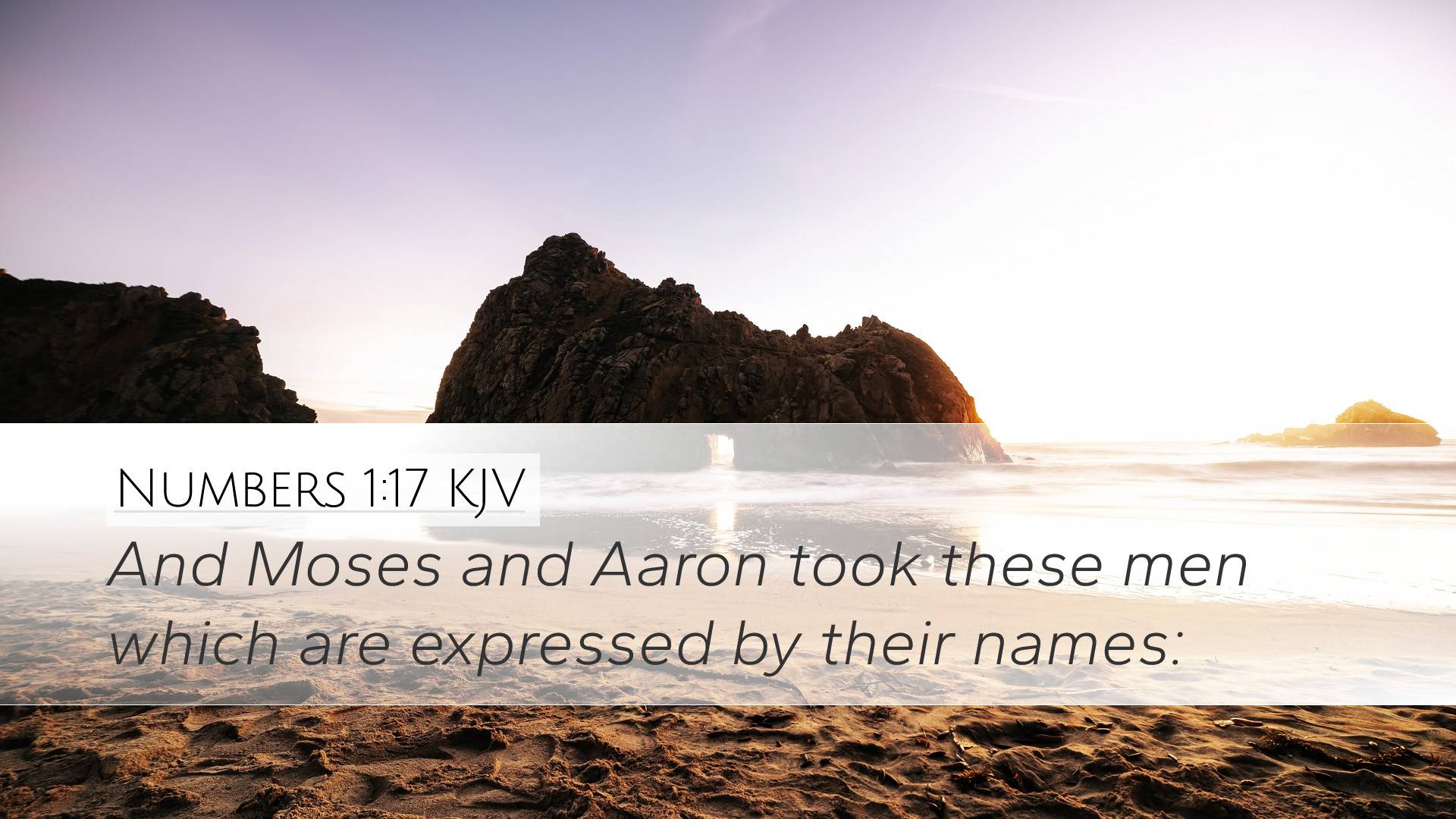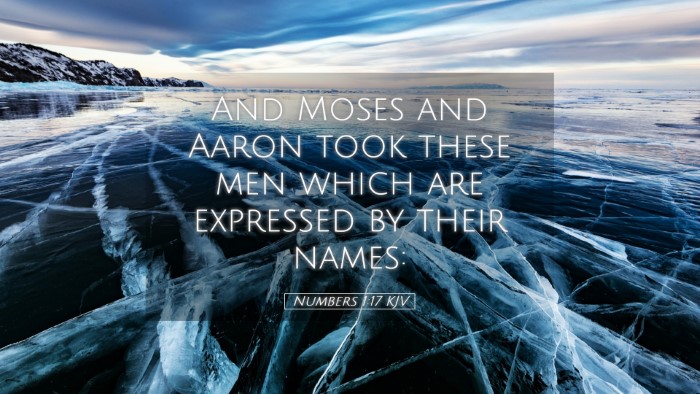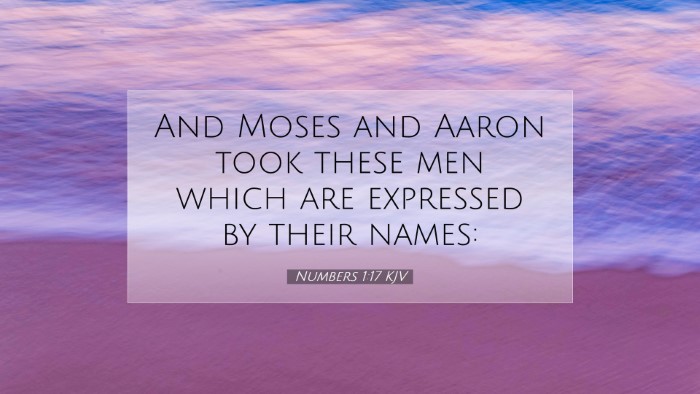Commentary on Numbers 1:17
Contextual Background:
The book of Numbers marks a significant phase in the journey of the Israelites as they wander through the wilderness toward the Promised Land. This particular verse, Numbers 1:17, is part of a larger narrative that details the organization and census of the Israelite community. Primarily, God designs the structure of His people, demonstrating order amidst their nomadic lifestyle.
Verse Analysis:
Numbers 1:17 states: "And Moses and Aaron took these men which are expressed by their names." This verse serves as a transitional statement in the context of the ongoing census, emphasizing the leadership of Moses and Aaron in the organization of the Israelites. Their role as mediators and leaders is crucial, as they serve as the appointed representatives of God’s commands.
Contribution from Public Domain Commentators
Matthew Henry's Commentary:
Matthew Henry highlights the importance of the leaders in the Israelite community. He points out that by taking authority in the census process, Moses and Aaron were not only following God’s command, but they were also affirming the role of human leadership in carrying out divine plans. Henry emphasizes that every division and organization in the camp had a purpose in God’s larger narrative for Israel.
- Leadership Importance: God’s directives are carried out through human leaders.
- Divine Order: The organization signifies God’s order and the importance of structure in the community of believers.
Albert Barnes' Notes:
Albert Barnes accents the administrative aspect of the roles played by Moses and Aaron in gathering the names as part of the census. He provides insight into the efficiency required for such a task, shedding light on the responsibility entrusted to these leaders. Barnes comments that by collecting the names, it created a sense of identity and purpose within the tribes, which would be vital for future operations in the land of Canaan.
- Administrative Duties: Acknowledges the importance of organization and planning.
- Tribal Identity: Each individual counted contributed to a collective identity, fostering unity among the people.
Adam Clarke's Commentary:
Adam Clarke provides a theological perspective behind the naming and counting of the men as outlined in this verse. He discusses how names carry significance in biblical texts, representing character and destiny. The act of naming is a reaffirmation of God's intentions for Israel, as exemplified by the use of specific names to represent representatives from each tribe.
- Significance of Names: Names symbolize the unique role and identity each person plays within God’s kingdom.
- Theological Implications: The census is not only practical but also a spiritual act reflecting God’s covenant with His people.
Theological Implications
The gathering of specific individuals by Moses and Aaron points to a critical aspect of community within the body of Christ today. Each individual plays a role, and God’s order is essential for unity. Moses and Aaron’s leadership can remind modern churches of the necessity for structure, ordained leadership, and accountability.
Practical Applications
This verse invites pastors and leaders to consider how they organize and equip their congregations. Just as Moses and Aaron took the initiative to count and organize, modern leaders are called upon to recognize and maximize the gifts within their community. The administrative responsibilities of church leadership can mirror those described in Numbers, ensuring that every member is accounted for and involved in the mission of the church.
Conclusion
In Numbers 1:17, we see the divine orchestration of community life through the leadership roles of Moses and Aaron. Their actions serve as a reminder of the importance of organization, the significance of individual roles, and the overarching plan of God for His people. Just as in biblical times, effective leadership encompasses the tasks of awareness, organization, and spiritual oversight to prepare God's people for their journey ahead.


